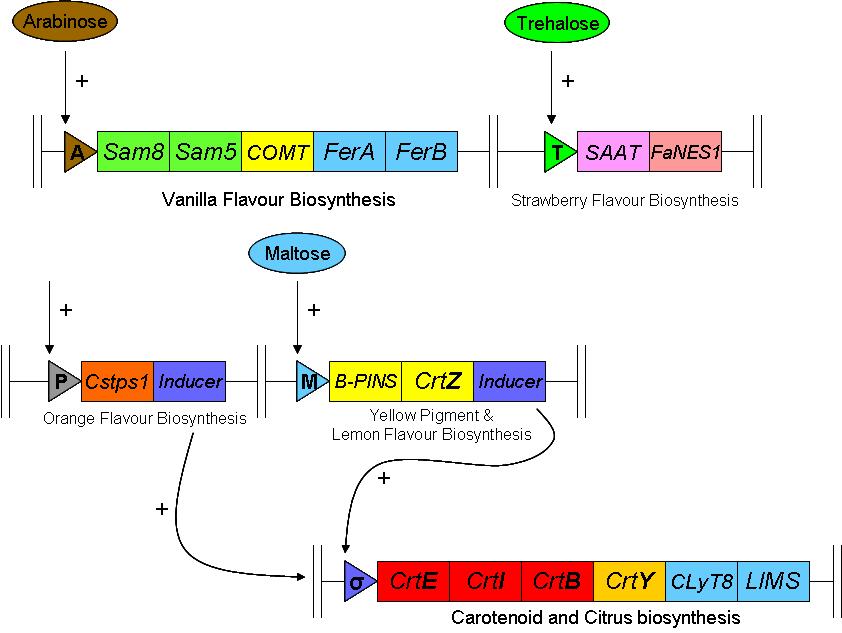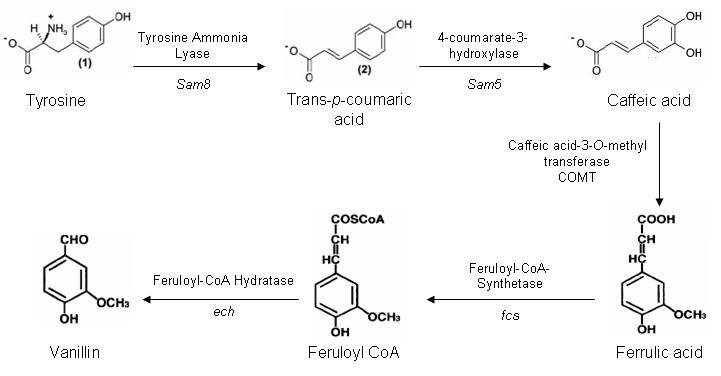Edinburgh/Yoghurt
From 2007.igem.org
(→Vanillin Biosynthesis Pathway) |
(→vanillin Project) |
||
| Line 40: | Line 40: | ||
|} | |} | ||
| - | === | + | ===Vanillin Project=== |
One of our aims for iGEM is to construct a synthetic pathway to produce vanillin from the amino acid tyrosine. There are five genes in this pathway, which are present in three different organisms. | One of our aims for iGEM is to construct a synthetic pathway to produce vanillin from the amino acid tyrosine. There are five genes in this pathway, which are present in three different organisms. | ||
| - | ====Vanillin Biosynthesis Pathway==== | + | =====Vanillin Biosynthesis Pathway===== |
[[Image:Vanillin synthesis pathway.JPG]] | [[Image:Vanillin synthesis pathway.JPG]] | ||
Revision as of 11:54, 23 July 2007
https://static.igem.org/mediawiki/2007/f/f5/800px-Edinburgh_City_15_mod.JPG
Contents |
Self flavouring yoghurt
Project Goal
Engineer lactic acid bacteria, such as Lactobacillus acidiphilus to synthesise flavours and colours during yoghurt production. The idea is to stimulate the synthesis of a certain flavour and colour via the addition of an external stimulus. Due to the nature of the finished product we will be using promoters induced by the disaccharides maltose, trehalose and arabinose.
The project will be carried out in two parts. The first is to generate the flavour and colour biosynthesis pathways in E. coli. The other part is to produce a way of placing biobricks into Lactobacillus.
Finally the flavour and colour biosynthesis pathways can be transferred to Lactobacillus.
Vanillin Project
One of our aims for iGEM is to construct a synthetic pathway to produce vanillin from the amino acid tyrosine. There are five genes in this pathway, which are present in three different organisms.

